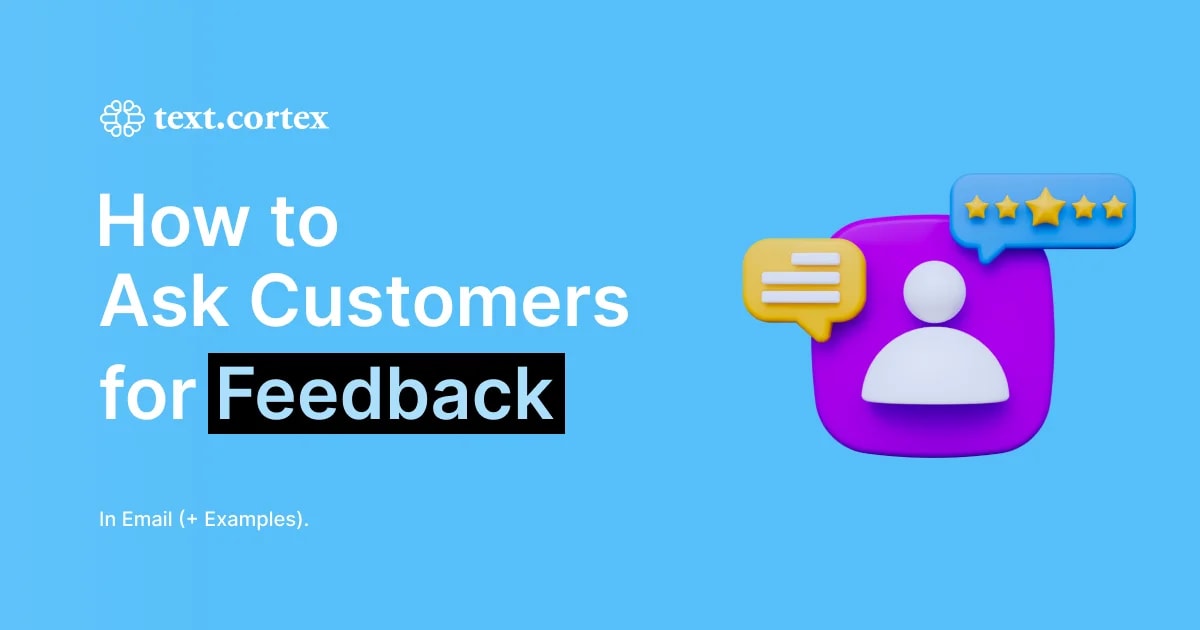Sending a well-crafted email to a real estate agent can make a real difference in your property journey.
Whether you're thinking about buying or selling, or if you're just looking for some information, writing an email that's both organized and engaging can really kick off a meaningful conversation.
By approaching it the right way, you'll be able to grab the agent's attention and clearly express your needs.
In this article, we're here to walk you through the important steps and best practices for writing an email that'll get you into a helpful discussion with a real estate professional.
Let’s begin!
The Top 10 Insights to Share with Your Real Estate Agent for a Successful Partnership
Real estate isn't an everyday purchase. It involves careful planning and finding someone trustworthy to handle it.
That's why, when getting into real estate, there are a few key points a real estate agent needs to know for a successful and seamless partnership:
👍 Your Goals and Objectives
Make sure to let your real estate agent know what you're aiming for in the transaction.
Whether you're buying, selling, or renting, sharing your priorities will help the agent understand how to best assist you.
👍 Budget and Financial Parameters
Give your real estate agent an idea of your budget range or any financial constraints you have. This will help them narrow down choices and avoid spending time on properties that don't match your financial situation.
👍 Property Preferences
Tell your real estate agent what kind of property you're into, including how many bedrooms and bathrooms you want, where you'd like it to be, and any special things you're hoping for, like certain amenities or features. This makes sure the agent shows you choices that really fit the bill.
👍 Timeline
Give the agent a heads-up about when you'd like the deal to happen.
Whether you're in a hurry or have a bit more time, sharing this info helps the agent find properties that fit your timeline.
👍 Communication Preferences
Let the agent know how you like to stay in touch—whether it's through emails, phone calls, or face-to-face chats.
This way, they can reach out to you in a way that works best for you and keeps things smooth and effective.
👍 Negotiation Strategy
Chat about how you handle negotiations, like if you're open to give-and-take, your preferred conditions, and anything that's a complete no-go for you.
This gives the agent the insight they need to negotiate for you in the best possible way.
👍 Legal and Documentation Needs
Make sure to tell the agent if you've got any particular legal or paperwork needs.
This is particularly crucial for folks from different countries or those with special legal situations.
👍 Past Experiences and Concerns
Feel free to talk about any past experiences you've had with real estate deals, whether they went well or not so well.
Also, bring up any worries you might have so you can tackle potential issues from the start.
👍 Preferred Service Level
Let the agent know what kind of service you're looking for.
Whether you want frequent updates, deep market insights, or more involved assistance, this helps them understand how to best work with you.
👍 Feedback and Communication
Set up a way to exchange feedback with the agent.
Encourage them to share their ideas and recommendations while making sure they also value your input and are willing to adapt their approach based on it.
Keep in mind that open and honest communication is vital when dealing with a real estate agent.
By sharing these crucial aspects from the start, you empower the agent to customize their support according to your requirements, resulting in a more streamlined and prosperous real estate journey.
Now that you're equipped with the necessary information, crafting an email to your real estate agent will be a breeze.
Let's review all the steps so you can have them as your guiding framework.
9 Steps to Write an Email to a Real Estate Agent
Creating a impactful email for a real estate agent demands a considerate strategy to guarantee your communication is concise, polished, and captivating.
No need to go overboard with an essay.
Instead, focus on a concise package of information that strongly highlights all the requests we covered earlier.
Here's a systematic outline on how to craft an engaging email to a real estate agent:
1. Subject Line: Grab Attention
When crafting your subject line, ensure it succinctly captures the essence of your email's purpose.
A relevant and engaging subject line can make all the difference in capturing the agent's attention amidst their busy schedule.
Use it as a teaser to entice them into opening your message, setting the stage for the valuable information you're about to share.
Subject Line Example
💡 Example 1: "Exploring New Home Options: Seeking Expertise in [Desired Location]"
💡 Example 2: "Ready to Invest: Your Insights on [Desired Location] Properties"
💡 Example 3: "New Chapter Ahead: Inquiring About [Desired Location] Real Estate"
2. Greeting: Be Professional
Begin your email with a courteous and formal salutation, utilizing the real estate agent's name and the appropriate title, such as "Mr." or "Ms."
This initial step establishes a professional atmosphere and reflects your respect for their role. Addressing them by their name and title immediately creates a sense of personal connection, which is essential for fostering a productive and respectful dialogue.
Greeting Example
💡 Example 1: "Dear Mr. Anderson,"
💡 Example 2: "Hello Ms. Ramirez,"
💡 Example 3: "Good day, Mr. Patel,"
3. Introduction: Establish Context
Start the body of your email with a succinct introduction that sheds light on your familiarity with the real estate agent's services or the specific reason prompting your outreach.
Sharing this context helps the agent grasp the basis of your connection and the underlying purpose of your email.
Whether you learned about their expertise through a recommendation or came across their listings online, this initial detail establishes a foundation for meaningful communication.
It allows the agent to better gauge how they can assist you effectively in your real estate journey.
Introduction Example
💡 Example 1: "I hope this email finds you well. After researching local real estate professionals, your exceptional track record in the [Desired Location] area stood out. I am reaching out to explore potential collaboration as I embark on a property search in this vibrant community."
💡 Example 2: "Greetings, Ms. Johnson. As I navigate the dynamic world of real estate, your name repeatedly surfaced as a trusted expert in the [Desired Location] market. Having heard glowing recommendations from friends, I am excited to connect and seek your insights as I consider investing in this area."
💡 Example 3: "Hello Mr. Patel, I recently came across your informative blog posts on real estate trends, which offered valuable insights into the [Desired Location] property market. Impressed by your knowledge, I am reaching out to discuss potential opportunities and seek guidance as I embark on my home-buying journey."
4. State Your Purpose: Be Clear
Ensure that your email's purpose is unmistakably articulated in a succinct manner.
Whether you're considering a property purchase, seeking assistance in selling, exploring rental options, or simply gathering information about the local real estate market, make sure your intention is crystal clear right from the start.
This transparency allows the real estate agent to tailor their response to address your specific needs and ensures that your correspondence is both focused and productive.
Purpose Example
💡 Example 1: "I am reaching out to explore potential properties for purchase in the [Desired Location] area and would greatly appreciate your expertise in guiding me through this process."
💡 Example 2: "My family and I are considering relocating to [Desired Location], and we are in need of a real estate professional to assist us in finding a suitable rental property that aligns with our requirements."
💡 Example 3: "I am interested in selling my current property in the [Desired Location] neighborhood and would like to discuss the possibility of enlisting your services for a smooth and successful sale."
5. Provide Details: Be Specific
When detailing your requirements, provide essential information to help the real estate agent understand your needs comprehensively.
✔️ Clearly state your preferred property type, whether it's a single-family home, condominium, or townhouse.
✔️ Specify your desired location or neighborhood, as this significantly impacts property options.
✔️ It's also crucial to outline your budget range to ensure that the agent suggests properties within your financial scope.
✔️ Additionally, highlighting any specific features you're seeking, such as a backyard, number of bedrooms, or proximity to amenities, allows the agent to tailor their recommendations precisely to your preferences.
The more precise and thorough your input, the better equipped the agent will be to provide options that align with your vision.
Details Example
💡 Example 1: “I'm interested in purchasing a single-family home in the [Desired Location] area. My budget is within the range of $500,000 to $600,000. I'm particularly keen on properties with at least three bedrooms, a spacious backyard, and proximity to reputable schools."
💡 Example 2: "My family is searching for a rental property in the [Desired Location] neighborhood. We're looking for a three-bedroom apartment with modern amenities, a pet-friendly policy, and a monthly rent not exceeding $2,500."
💡 Example 3: "I'm considering selling my townhouse in [Current Location] and am seeking guidance on the process. The property has three bedrooms and a small garden. I'd appreciate an estimation of its market value and insights into the best time to list it."
6. Ask Questions: Encourage Engagement
Feel free to engage the real estate agent by posing pertinent questions about various aspects.
Inquire about current market trends, the availability of properties that meet your criteria, or any insights they might have on neighborhood dynamics.
By asking these questions, you not only initiate a meaningful dialogue but also showcase your proactive interest in the process.
Their responses can provide you with valuable information that guides your decisions and helps establish a rapport with the agent, fostering a collaborative partnership.
Question Example
💡 Example 1: "Could you provide insights into the current market trends and property values in the [Desired Location] area? I'm particularly interested in understanding how the market has been performing over the past few months."
💡 Example 2: "Are there any properties available that match my criteria for a rental in the [Desired Location] neighborhood? I'd like to know more about the options that align with our family's needs."
💡 Example 3: "Given your expertise in the [Current Location] market, could you advise me on the best strategy for selling my property? I'm curious about the current demand for similar homes in the area."
7. Highlight Timelines: Communicate Urgency
Providing a clear timeline for your real estate endeavors is essential to help the agent tailor their services accordingly.
If you aim to relocate swiftly due to work commitments or other factors, communicating this urgency allows the agent to focus on properties that align with your time-sensitive needs.
Conversely, if you have a more flexible schedule, this information enables the agent to explore a broader range of options and consider potential opportunities that might take longer to develop.
In either case, your timeline serves as a pivotal guidepost for the agent's approach, ensuring their efforts align with your specific requirements.
Timeline Example
💡 Example 1: "I'm hoping to finalize a rental property within the next two weeks, as my current lease is expiring soon. Your insights and assistance in finding a suitable home promptly would be greatly appreciated."
💡 Example 2: "Our family is planning a relocation to [Desired Location] within the next four months, and we're looking to purchase a home before then. Your expertise in navigating the market efficiently would be invaluable as we work towards a smooth transition."
💡 Example 3: "While I'm open to exploring the market over the next few months, I don't have an immediate rush to make a decision. I'm interested in understanding the available options and making a well-informed choice at a pace that suits me."
8. Express Expectations: Set Communication Tone
It's important to outline your communication preferences clearly to establish effective interaction.
Indicate whether you prefer communication via email, phone calls, or in-person meetings, as this ensures the agent reaches out to you through your preferred channels.
Additionally, letting the agent know your expectations for updates and responsiveness helps set a mutual understanding.
Whether you anticipate regular updates on property listings or prefer a prompt response to inquiries, specifying these expectations guides the agent in meeting your communication needs and fostering a productive partnership.
Expectation Example
💡 Example 1: "I prefer to communicate primarily via email, as it allows me to review information at my convenience. I would appreciate updates on new property listings and any relevant market insights at least once a week to stay well-informed."
💡 Example 2: "I'm comfortable with both email and phone calls for communication. Given the fast-paced nature of the market, I kindly request timely responses to any queries or updates. Regular updates on potential properties and market trends would be ideal."
💡 Example 3: "I believe in the value of face-to-face discussions. Let's start with an initial meeting to discuss my requirements and preferences in detail. Moving forward, I'd appreciate bi-weekly email updates on new listings, alongside occasional phone calls for in-depth discussions on potential options."
9. Professional Sign-off: Close Gracefully
Wrap up your email with a polished closing statement that adds a professional touch.
Utilize phrases like "Best regards," "Sincerely," or "Thank you," which convey a sense of respect and formality.
This closing provides a courteous transition to your signature and helps maintain a professional tone throughout the correspondence.
After closing, include your full name to sign off and offer your contact details, phone number, and email address.
Providing these details ensures the agent can easily reach out for further discussions or inquiries, fostering a seamless continuation of your real estate interaction.
Sign-off Example
💡 Example 1:
"Best regards,
John Smith
Phone: (123) 456-7890
Email: [email protected]"
💡 Example 2:
"Sincerely,
Emily Johnson
Contact: (987) 654-3210
Email: [email protected]"
💡 Example 3:
"Thank you,
David Patel
Reach me at: (555) 123-4567
Email: [email protected]"
Remember, crafting concise and focused emails increases the likelihood of receiving prompt and comprehensive responses. You can build a fruitful partnership with your selected real estate agent by writing an email to your real estate agent.
And guess what?
You're about to uncover 3 ingenious tricks that will effortlessly guide you through these 9 email-writing steps in one smooth sweep.
Stay tuned to discover how to master this process with ease!
Write an Email To a Real Estate Agent Using TextCortex
You know what's a real challenge in emails? Finding that sweet spot for the ideal result.
Can you relate?
Even as a writer, there's this fear of missing crucial details, but then you're left with a massive block of text that's not so inviting to read.
And hey, automation can be a lifesaver when time's tight, right?
Well, TextCortex can be a valuable tool in aiding you to write effective emails to real estate agents by enhancing various aspects of your communication:
1. Clarity and Conciseness ✔️ — TextCortex can help refine your message, ensuring that your email is clear, concise, and effectively conveys your intentions. It can suggest ways to streamline your language, eliminating unnecessary jargon or redundancy.
2. Tone and Politeness ✔️— The tool can assist in maintaining a professional and courteous tone throughout your email. It can provide suggestions to ensure your message strikes the right balance between being friendly and respectful.
3. Grammar and Spelling ✔️ — TextCortex's grammar and spelling suggestions can help you present a polished and error-free email. This is crucial in portraying your professionalism and attention to detail.
4. Structure and Formatting ✔️ — TextCortex can provide recommendations for structuring your email effectively. It can suggest appropriate headings, bullet points, or paragraphs to organize your content for maximum impact.
5. Vocabulary Enhancement ✔️ — The tool can suggest synonyms or alternative phrasings to enhance your vocabulary, making your email more engaging and impactful.
6. Tailoring to Audience ✔️— By analyzing your content, TextCortex can help you adapt your email to the recipient's likely preferences. This can include adjusting the level of formality, choice of words, and style of communication.
7. Revisions and Refinements ✔️— If you receive feedback from the agent or feel the need to modify your email, you can use TextCortex to make revisions and ensure your message remains coherent and well-structured.
8. Efficiency and Productivity ✔️— TextCortex's AI capabilities can save you time by quickly suggesting improvements and refining your email's content. This enables you to craft high-quality emails more efficiently.
Incorporating TextCortex into your email writing process can help you create emails that are not only well-composed and error-free but also tailored to effectively engage real estate agents and convey your needs.
How to Achieve All Of This?
1. Sign up to create your account.
2. Install TextCortex’s ZenoChat add-on for access across 2000+ online platforms, including email providers and text editors.
3. Begin crafting emails in 3 simple ways.
I Using conversational ZenoChat
Once you open the ZenoChat window, enter your prompt.
Start outlining the expected request, preferred language, and desired writing style.
Here, you can also upload documents or provide a URL for external data if needed, or even enable a web search.
II Bullet to Email feature from Rewriting Tool
Compile your essential notes within the email, highlighting the text.
Then, select the feature “Bullet to email” from the Rewriting menu that appears below the text. This helps streamline your email composition.
III TextCortex Library
Use 60+ predefined AI templates for various content forms to find the one that fits the content type you need.
Ready to find out more? Its free to explore!
Sing up today to unlock the potential of AI-driven writing with our freemium account.
Experience crafting emails in 70% less time, without compromising quality, while generating the impactful responses you desire.



.webp)
